REGISTER NOW
Conference Program
1:00 PM - 4:00 PM
Making Research Matter: Bridging the Gap Between the Academic and Operational Worlds
Monday, November 17
1:00 PM - 4:00 PM
 |
Dr. Nicholas Carleton, Ph.D., R.D. Psych. Professor of Clinical Psychology University of Regina |
 |
Dr. Tim Black PhD, R. Psych. National Clinical Director Wounded Warriors Canada |
 |
Dr. Nadia Aleem Psychiatrist, MD, MHSc CCFP, FRCP Mental Health Lead Insight Health Solutions, Trillium Health Partners |
Join us for a half-day workshop focused on building connections through formative, in-depth discussions on how to make research that matters in the operational worlds of Trauma Exposed Professionals (TExP) and their families (TExF). All are invited to attend to learn, share, and contribute to the roundtable discussions of successes, challenges, barriers, and solutions for addressing the gap between academic research and real-world relevance for operational communities. This unique event will be facilitated by Drs. Nick Carleton and Tim Black, Nadia Aleem with a focus on building connections and bridges between these two worlds.
6:00 PM - 8:00 PM
Reception (Business Casual)
Monday, November 17
6:00 PM - 8:00 PM
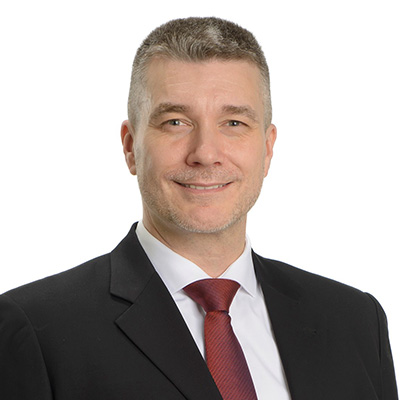
Dr. R. Nicholas Carleton, Ph.D., R.D. Psych.
Professor of Clinical Psychology
University of Regina
R. Nicholas Carleton, Ph.D. is a Professor of Clinical Psychology and a registered clinical psychologist in Saskatchewan. His work is focused on supporting the mental health of first responders and other public safety personnel. He has published more than 270 peer-reviewed articles and book chapters exploring the fundamental bases of anxiety- and trauma-related disorders. He has completed more than 500 national and international conference presentations. He also serves as an active member of several national and international professional associations. As principal or co-principal investigator he has been awarded more than $100M in competitive external funding. He has received several prestigious awards and recognitions, including induction to the Royal Society of Canada’s College and as a Fellow of the Canadian Academy of Health Sciences, and he was awarded the 2023 Saskatchewan Health Research Foundation Mid-Career Award and the 2020 Royal-Mach-Gaensslen Prize for Mental Health Research. He is principal investigator for the RCMP Longitudinal PTSD Study (www.rcmpstudy.ca) and the associated extension study for Saskatchewan public safety personnel (www.saskptsistudy.ca), and co-investigator on the Federal Internet Cognitive Behavioral Therapy Program for public safety personnel (www.PSPNET.ca).
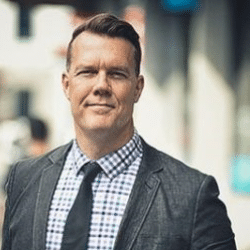
Dr. Tim Black PhD, R. Psych.
National Clinical Director
Wounded Warriors Canada
Dr. Tim Black, R. Psych. is the National Clinical Director for Wounded Warriors Canada. During his more than 20-year career as a tenured Associate Professor at one of the top graduate counsellor education programs in the country, Dr. Black has been a researcher, clinician, program developer, program co-founder, and clinical supervisor specializing in group counselling approaches for working with Trauma Exposed Professionals (TExP) and Trauma Exposed Family (TExF) members. As National Clinical Director, Tim supports and oversees the development and delivery of WWC’s group counselling programs in Canada, as well as WWC’s TExP education and training programs, alongside an extensive team of dedicated mental health professionals committed to serving the needs of TExP and TExF communities.
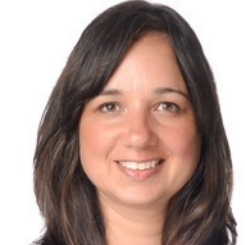
Dr. Nadia Aleem
Psychiatrist, MD, MHSc CCFP, FRCP
Mental Health Lead
Insight Health Solutions, Trillium Health Partners
Dr. Nadia Aleem initially worked as a Family medicine Doctor and Addictions Physician prior to retraining and starting her work as a Psychiatrist. She is currently the Mental Health Lead Physician at Insight Solutions, Trillium Health Partners and was formerly the Medical Head at the Work Stress and Health Program at the Centre for Addiction and Mental Health. Nadia works exclusively in the field of Occupational Psychiatry, specializing in disability management and providing consultation and education on workplace mental health policies. She is an Assistant Professor at the University of Toronto and provides education seminars to organizations and medical training programs across Canada.
7:30 AM - 8:30 AM
Registration & Breakfast
Tuesday, November 18
7:30 AM - 8:30 AM
8:30 AM - 8:35 AM
8:35 AM - 8:40 AM
Opening remarks
Tuesday, November 18
8:35 AM - 8:40 AM
Plenary Speakers
 |
Alison Cocking | 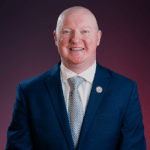 |
Scott Maxwell |
8:40 AM - 8:50 AM
Message from the Government of Alberta
Tuesday, November 18
8:40 AM - 8:50 AM
8:50 AM - 9:00 AM
Provincial Update
Tuesday, November 18
8:50 AM - 9:00 AM
9:00 AM - 10:00 AM
Setting the Tone
Tuesday, November 18
9:00 AM - 10:00 AM
10:00 AM - 10:30 AM
Refreshment Break
Tuesday, November 18
10:00 AM - 10:30 AM
10:30 AM - 11:45 AM
Concurrent Workshops
Tuesday, November 18
10:30 AM - 11:45 AM
11:45 AM - 12:45 PM
Lunch
Tuesday, November 18
11:45 AM - 12:45 PM
12:45 PM - 1:45 PM
Keynote Address
Tuesday, November 18
12:45 PM - 1:45 PM
1:45 PM - 2:15 PM
Refreshment Break
Tuesday, November 18
1:45 PM - 2:15 PM
2:15 PM - 3:30 PM
Concurrent Workshops
Tuesday, November 18
2:15 PM - 3:30 PM
3:30 PM - 4:15 PM
Plenary Panel Session – Voices from the Frontline
Tuesday, November 18
3:30 PM - 4:15 PM
4:50 PM - 5:00 PM
Closing Remarks
Tuesday, November 18
4:50 PM - 5:00 PM
Plenary Speakers
 |
Alison Cocking |  |
Scott Maxwell |

Dr. Rosemary Ricciardelli, PhD
Professor and Research Chair: Safety, Security, and Wellness
Memorial University of Newfoundland
Dr. Rosemary Ricciardelli is Professor (PhD) and Research Chair in Safety, Security, and Wellness, at Memorial University of Newfoundland’s Fisheries and Marine Institute. The winner of the 2023 International Corrections and Prison Association’s Research Excellence Award and the Canadian Sociological Association’s Angus Reid Applied Researcher Award, Ricciardelli was also elected to the Royal Society of Canada and is a fellow of the Canadian Academy of Health Sciences. Her research centers on evolving understandings of gender, vulnerabilities, risk, and experiences and issues within different facets of the criminal justice system and among mariners. She has published 17 books, 285+ journal articles and 70+ chapters all in the areas of police, firefighting, correctional workers, public safety communicators, and criminalized persons, and wellness – broadly defined. As a sex and gender researcher, her interests lay in the social health, identity construction, and lived experiences of individuals. She leads a longitudinal study on the mental health and well-being experiences of correctional officers employed by Correctional Services Canada.
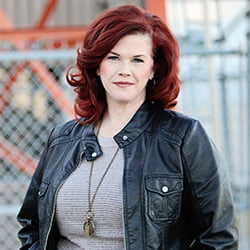
J’lyn Nye
J’lyn Nye is an award-winning journalist who worked in television and radio in cities across Western Canada for 35 years. In late 2023, she turned off the microphone and set her sights on a new challenge, taking on the role of Director of Marketing and Digital Media for the Edmonton Police Service. J’lyn has been a longtime supporter of those in uniform and Wounded Warriors Canada.
J’lyn is the Honourary Colonel of 408 Tactical Helicopter Squadron with the RCAF and Patron of the Edmonton Garrison Military Family Resource Centre. She was awarded the Minister of Veterans Affairs Commendation in 2022 and received the Queen Platinum Jubilee Medal in 2023 for her steadfast commitment to the military and veteran community.
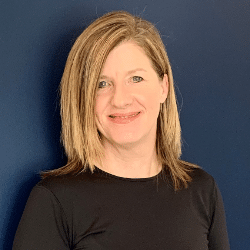
Alison Cocking BSc. PT, M.Ed.
Managing Director
Insight Health Solutions, Trillium Health Partners
Alison Cocking is a strategic healthcare leader who serves as Trillium Health Partner’s Managing Director, Insight Health Solutions, one of Canada’s largest hospital-based disability management third-party programs. As a senior leader in the healthcare sector, Alison has over three decades of experience leading high functioning teams and programs in their delivery of impactful value-based quality services. The ability to financially contribute Insight’s profits to the hospital’s programs and services to help create a new kind of healthcare for a healthier community, is what drives and inspires her. Alison is a UK-trained Physiotherapist with a Master’s degree in Education from the University of Toronto. An avid kayaker, hiker, traveler and general enthusiast of the great outdoors, Alison’s goal is to have visited 100 countries by 2045.
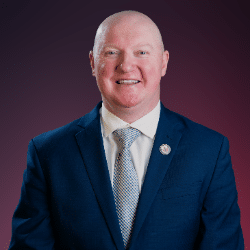
Scott Maxwell
Executive Director
Wounded Warriors Canada
On June 11, 2007 Trooper Darryl Caswell, a high school friend of Scott’s, was killed by a roadside bomb in Afghanistan. From that day forward, Scott made a promise to himself that he would find a way to give back to those who bravely serve Canada. In 2013, Scott accepted the position of Executive Director of Wounded Warriors Canada. He embarked on a journey in the mental health sector that has seen him successfully transform what was a volunteer-based, local charitable fund into a national mental health service provider that supports over 2,000 Veterans, First Responders and their families each year.

Richard Ireland, Mayor of Jasper
Richard Ireland was born and raised in Jasper. He left Jasper to pursue a law degree and career, returning with his family in the late 1980s.
He was first elected to the Jasper Town Committee in 1989. The Jasper Town Committee was in place prior to the establishment of local government. For more than two decades he spearheaded efforts first to establish local government in Jasper and then to consolidate it. He has come to symbolize the community’s aspirations to achieve local self-determination.
Richard Ireland was elected as Jasper’s first Mayor in October 2001, acclaimed for a second term in 2004, re-elected in 2007, 2010, and 2013, acclaimed again in 2017; and re-elected in 2021.
The recent Jasper Wildfire Complex is the single, most significant event in many generations of Jasperites, and Mayor Ireland’s leadership, strength, and kindness shone through in his messages to displaced residents. At a time when he, his family, his friends and neighbours were all suffering immeasurable losses and struggling with their own next steps he remained focused on his important public role.
He extolled the efforts of all those who ensured the safe evacuation of over 20,000 people.
In the face of the community’s catastrophic loss, he reminded everyone that through the heroic efforts of firefighters, unified action, effective preparation, planning and training, 70% of the town’s structures and all critical infrastructure were saved: the base upon which a community for all would be rebuilt.
He now continues to work collaboratively with the Government of Canada and the Province of Alberta on behalf of the community to move into the recovery and rebuilding phases. It will be a long and difficult process, fraught with challenges.
Mayor Ireland will persevere with the great determination, patience and confidence he has so consistently demonstrated.
Richard is married to Bonnie. They have two sons and two granddaughters.

Dr. Nadia Aleem
Psychiatrist, MD, MHSc CCFP, FRCP
Mental Health Lead
Insight Health Solutions, Trillium Health Partners
Dr. Nadia Aleem initially worked as a Family medicine Doctor and Addictions Physician prior to retraining and starting her work as a Psychiatrist. She is currently the Mental Health Lead Physician at Insight Solutions, Trillium Health Partners and was formerly the Medical Head at the Work Stress and Health Program at the Centre for Addiction and Mental Health. Nadia works exclusively in the field of Occupational Psychiatry, specializing in disability management and providing consultation and education on workplace mental health policies. She is an Assistant Professor at the University of Toronto and provides education seminars to organizations and medical training programs across Canada.
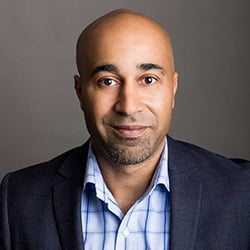
Dr. Lawrence Deck, Ph.D.
Registered Psychologist, Chief Clinical Officer
Wayfound Mental Health Group
Dr. Lawrence Deck is the Chief Clinical Officer at Wayfound. He has been practicing as a psychologist since 2009. Dr. Deck graduated with his Master’s degree in counseling from California State University, Fresno. He subsequently completed his Ph.D. in psychology, forensic specialization through Walden University (Minneapolis, MN). He is a member of the Canadian Psychological Association as well as the National Association of Forensic Counselors. Registered with the College of Alberta Psychologists. Dr. Deck’s areas of interest include trauma, anger and aggression, and youth with behavioural difficulties. Dr. Deck’s treatment approach is grounded in Cognitive Behavioral Therapy (CBT), although he appreciates the usefulness of incorporating other approaches into his practice. In addition to individual therapy, Dr. Deck has extensive experience in multiple forms of assessment including; Cognitive, social-emotional, capacity, risk (sexual or violent risk), and comprehensive psychological evaluations. He has been formally recognized by the Alberta Provincial Court as an expert in the area of risk assessment and psychometrics. Dr. Deck completed his research in the area of violence and aggression and has specialized training in working with individuals who have offended sexually.
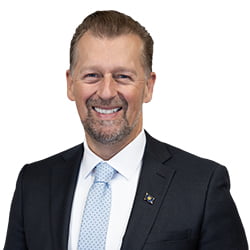
Mike Ellis
Deputy Premier and Minister of Public Safety and Emergency Services
Alberta
Mike Ellis was sworn in as Deputy Premier and Minister of Public Safety and Emergency Services on June 9, 2023. He previously served as Associate Minister of Mental Health and Addiction.
Prior to his service as an elected official, Mr. Ellis spent 12 years with the Calgary Police Service. During his tenure he served 8 years in the position of constable and three as patrol sergeant. In recognition of his service, he received a ten-year distinguished service medal in 2013.
Mr. Ellis has studied in the bachelor of policing program at Charles Sturt University in Australia. He also holds a management certificate from Mount Royal College and leadership certification from the International Association of Chiefs of Police.
Mr. Ellis is married to Hollie, and together they have 3 children.
Mike Ellis was first elected as the Member of the Legislative Assembly for Calgary-West on October 27, 2014 and was re-elected on May 5, 2015, April 16, 2019 and May 29, 2023.
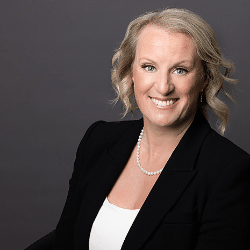
Dr. Megan McElheran R.Psych
Clinical Psychologist & CEO
Wayfound Mental Health Group
Dr. Megan McElheran is a Registered Clinical Psychologist and the CEO of Wayfound Mental Health Group. She completed her graduate training at the PAU-Stanford University Clinical Psychology Consortium, where she obtained specialized training in the treatment of PTSD through the National Center for PTSD in Menlo Park, CA. Dr. McElheran is passionate about arming frontline workers with the tools they need to help manage their workplace stress and has been in practice in Calgary, Alberta since 2008. She continues to focus on work with first responders, and her clinical practice involves work with active-duty members of the Canadian Forces, members of the Royal Canadian Mounted Police, members of the Calgary Fire Department, medical personnel, and others who are directly or vicariously impacted by traumatic events. Dr. McElheran founded the Before Operational Stress (BOS) program to address the gap in preventative mental health training and support for public safety personnel and frontline workers. She routinely engages in teaching and supervisory activity to ensure the sound dissemination of empirically grounded interventions for trauma. Dr. McElheran is regularly engaged in speaking events, both locally and internationally.
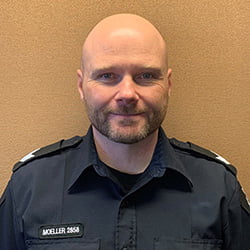
Tim Moeller, Sargeant
Edmonton Police Service
Sgt. Tim Moeller began his Law Enforcement career in May 2001 with the Alberta Transportation Commercial Vehicle Enforcement Branch (CVEB) after graduating from Grant MacEwan University's Police and Security Program. Sgt. Moeller worked for CVEB from 2001-2007 before being hired by the Edmonton Police Service (EPS) in February 2007.
From 2007-2011, Sgt. Moeller was a front-line patrol Constable in West Division Patrol. In 2011, Sgt. Moeller transferred into a Neighborhood Foot Patrol Unit along 124 St. From 2011-2015, Sgt. Moeller worked with community stakeholders in this high crime and disorder location to assist in reducing calls for service.
In 2015, Sgt. Moeller transferred into the Firearms Training Unit as a fulltime Firearms Instructor. From 2015-2020, Sgt. Moeller instructed new recruits and in-service members firearms and officer safety skills. In 2016, while in Firearms Training Unit, Sgt. Moeller joined the EPS Reintegration Team, where he worked with members after Officer Involved Shootings.
In 2020, Sgt. Moeller returned to the front-line working in West Division Patrol from 2020-2021. In 2021, Sgt. Moeller was promoted to the Sergeant i/c of the Reintegration Unit. In this role, Sgt. Moeller works with members returning to work after critical incidents, leaves of absence due to physical or psychological injury, and/or parental leaves. Sgt. Moeller also assists in training the EPS Critical Incident Reintegration Program across Canada, including presentations in the United States.
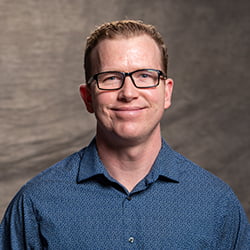
Dave Klein
Constable
Edmonton Police Service
Cst. Dave Klein began his Law Enforcement career in December 2007 with the Edmonton Police Service (EPS) after graduating with distinction from the University of Alberta with a double major in Psychology and Sociology.
After graduating recruit class, Cst. Klein was assigned to Downtown division patrol for 5 years. In 2012 Cst. Klein was assigned to the Inner City Police and Crisis Team (ICPACT) where he worked along side a psychiatric nurse doing mental health assessments of Edmonton’s most vulnerable populations. After 3 years in ICPACT, Cst. Klein transitioned to Entertainment Zone Beats along Jasper Avenue where he worked along side community stakeholders for 3 years. In 2017, Cst. Klein transferred from Downtown Division to Training Section and began training new recruits and the general membership as a Firearms Instructor.
While with Firearms Training Unit, Cst. Klein became a member of the Reintegration Team and began working with members post-Officer Involved Shootings. In 2021, the EPS created a full time Reintegration Constable position and Cst. Klein was successful in obtaining that position, which he currently occupies. This full time role allows Cst. Klein to work more robustly with members who are returning to work after psychological or physical injury, as well as leaves of absences. It also allows the ability to proactively work with members after a critical incident, helping to both prevent psychological injury from occurring and keep the member at work.

Dr. Helena Hawryluk PhD. RSW
Warrior Kids Program Co-Creator & Director
Wounded Warriors Canada
Dr Helena Hawryluk, PhD, RSW and Jerris Popik, MSW, RSW, are program developers and Directors of the Warrior Kids Programs with Wounded Warriors Canada. Helena and Jerris have been working with families of Veterans and First-Responders within Canada as clinicians, researchers and, more importantly disrupters for change around designing evidence-based high-quality programs for young people within the community of Trauma Exposed Professionals. Warrior Kids was designed to support youth who are living with a loved one impacted by the unique exposure to operational stress. The program has had a profound impact on the lives of these youth and their families, fostering resilience and promoting mental well-being. Building healthy families starts with kids, as opposed to ends with kids. Warrior Kids is a one-of-a-kind mental health program supporting resilience in the unique lives of public safety families.
Helena completed her undergraduate degree in Psychology at Concordia University, a Bachelor of Social Work from the University of Calgary, and her Master of Clinical Social Work and PhD with the Faculty of Social Work. She has practiced as a social worker for over 15 years with families of the Canadian Armed Forces and Public Safety Personnel. Helena was awarded the Wounded Warriors Doctoral Scholarship for her research entitled “Through our Eyes,” showcasing the unique perspectives and needs of youth in military families impacted by Post Traumatic Stress Disorder, post-Afghanistan war.
Jerris and Helena are currently the directors of the Warrior Kids Program. They are honoured to lead the Warrior Kids Team of facilitators and counsellors across Canada to support the youth in families impacted by operational stress injuries.
Jerris Popik MSW, RSW
Warrior Kids Program Co-Creator & Director
Wounded Warriors Canada
Dr Helena Hawryluk, PhD, RSW and Jerris Popik, MSW, RSW, are program developers and Directors of the Warrior Kids Programs with Wounded Warriors Canada. Helena and Jerris have been working with families of Veterans and First-Responders within Canada as clinicians, researchers and, more importantly disrupters for change around designing evidence-based high-quality programs for young people within the community of Trauma Exposed Professionals. Warrior Kids was designed to support youth who are living with a loved one impacted by the unique exposure to operational stress. The program has had a profound impact on the lives of these youth and their families, fostering resilience and promoting mental well-being. Building healthy families starts with kids, as opposed to ends with kids. Warrior Kids is a one-of-a-kind mental health program supporting resilience in the unique lives of public safety families.
Jerris Popik, received an applied psychology degree from Concordia University and a master’s degree in clinical social work from the University of Calgary. She has practiced as a social worker for over 15 years with families of the Canadian Armed Forces and Public Safety Personnel.
Jerris and Helena are currently the directors of the Warrior Kids Program. They are honoured to lead the Warrior Kids Team of facilitators and counsellors across Canada to support the youth in families impacted by operational stress injuries.
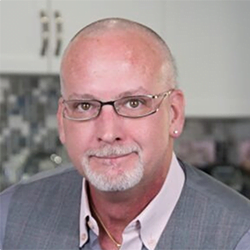
Dr. J. P. (John) Streukens, Ph.D., R.Psych.
Clinical Psychologist
Emergency Medical Services, Alberta Health Services
Dr. Streukens has spent 3 decades providing treatment services to individuals, couples, and groups. His primary areas of expertise include substance use disorders and clinical psychodiagnostics- primarily in the psychological disability management area. As the EMS Psychologist for Alberta Health Services, Dr. Streukens provides clinical guidance and consultation on EMS mental health and wellness programs and initiatives. Dr. Streukens is involved with operating his clinical practice, teaching in the Psychology Department at Mount Royal University and The University of Winnipeg, and overseeing the clinical assessments at two substance abuse treatment facilities
Dr. Streukens was educated at the University of Calgary and the University of Regina where his research interests consisted of the study of alcoholics in relation to personality, spirituality, moral development, and emotional maturity factors.
Dr. Streukens initiated the term SAE (Substance Abuse Expert) as a Canadian response to the SAP (Substance Abuse Professional). Finally, Dr. Streukens is an active member of CAP, PAA, CRHSP, and the CACCF.
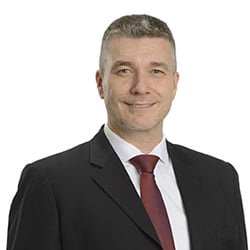
Dr. R. Nicholas Carleton Ph.D., R.D. Psych
University of Regina
R. Nicholas Carleton, Ph.D. is a Professor of Clinical Psychology and a registered clinical psychologist in Saskatchewan. His work is focused on supporting the mental health of first responders and other public safety personnel. He has published more than 270 peer-reviewed articles and book chapters exploring the fundamental bases of anxiety- and trauma-related disorders. He has completed more than 500 national and international conference presentations. He also serves as an active member of several national and international professional associations. As principal or co-principal investigator he has been awarded more than $72M in competitive external funding. He has received several prestigious awards and recognitions, including induction to the Royal Society of Canada’s College and as a Fellow of the Canadian Academy of Health Sciences, and he was awarded the 2023 Saskatchewan Health Research Foundation Mid-Career Award and the 2020 Royal-Mach-Gaensslen Prize for Mental Health Research. He is principal investigator for the RCMP Longitudinal PTSD Study (www.rcmpstudy.ca) and the associated extension study for Saskatchewan public safety personnel (www.saskptsistudy.ca), and co-investigator on the Federal Internet Cognitive Behavioral Therapy Program for public safety personnel (www.PSPSNET.ca).
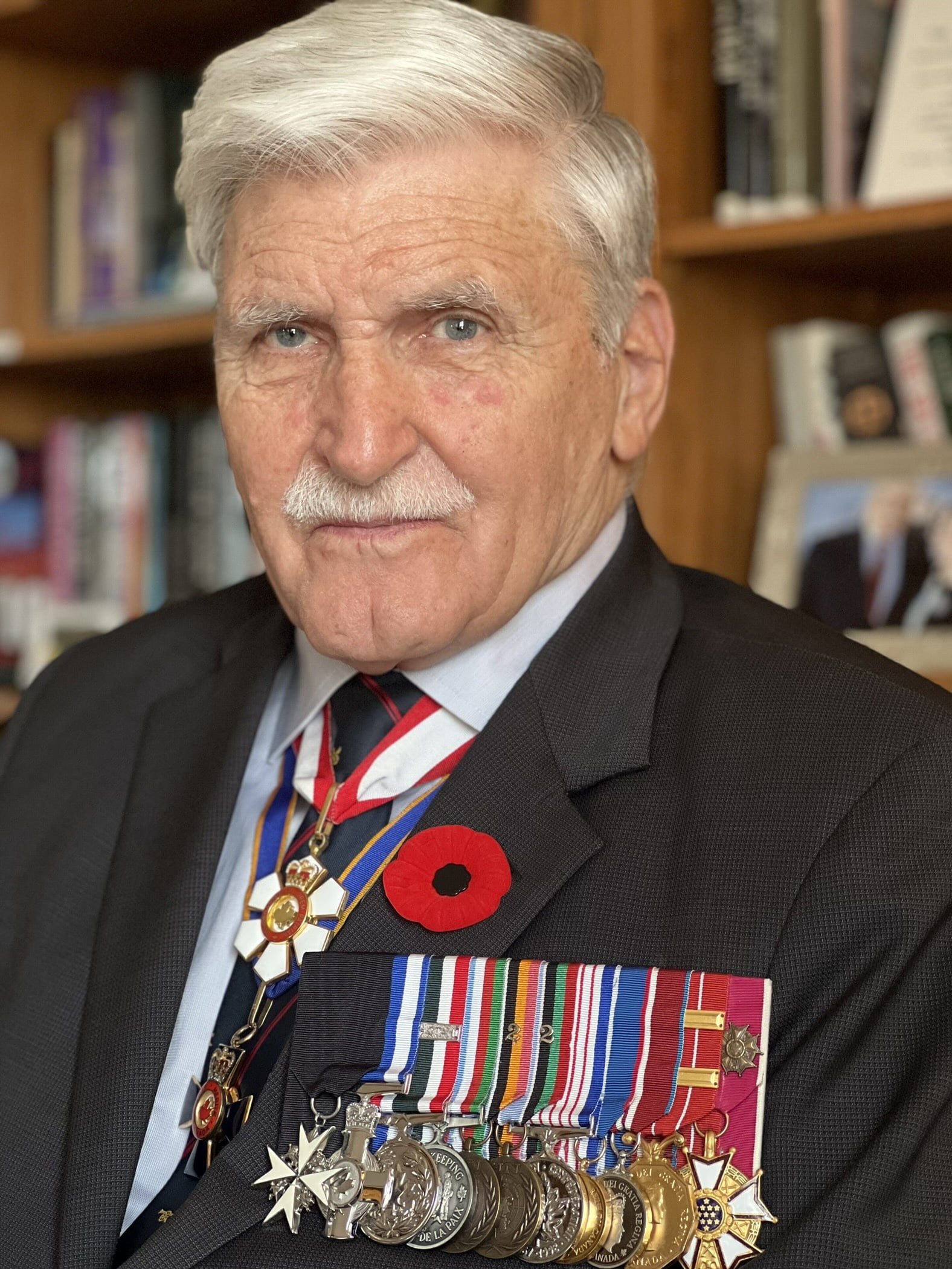
Lieutenant-General (ret) The Honourable Roméo A. Dallaire
O.C., C.M.M., G.O.Q., M.S.C., C.D., L.O.M. (U.S.), B.ésS., LL.D. (Hon.), D.Sc.Mil (Hon.), D.U.
General Roméo Dallaire is a celebrated advocate for global human rights, as well as a highly-respected author, public speaker, leadership consultant, international advisor, former Canadian Senator, and founder of la Fondation Roméo Dallaire and the Dallaire Institute for Children, Peace, and Security. Throughout his distinguished military career, General Dallaire served most notably as Force Commander of the United Nations Assistance Mission for Rwanda during the 1994 genocide.
General Dallaire provided the United Nations with information about the planned massacre, which ultimately took more than 800,000 lives in less than 100 days; yet, the UN ordered him not to intervene and demanded his withdrawal. General Dallaire, along with a small contingent, including Canadian, Ghanaian, and Tunisian soldiers and military observers, disobeyed that order. They believed they had a moral obligation to stay, to help where they could, and to—at the very least—bear witness to what the rest of the world chose to turn its back.
Armed only with blue berets, General Dallaire saved 32,000 people from brutal massacre, while negotiating with rebels leaders to stop the killing, and begging UN member states and the international media to intervene. If he had received only a few thousand troops and some ammunition to back up his bluffs, General Dallaire likely could have put an end to the bloodshed. Instead, two million human beings were displaced and upwards of a million slaughtered.
General Dallaire’s courage and leadership during this mission earned him the Order of Canada, the Meritorious Service Cross, the United States Legion of Merit, the Aegis Award on Genocide Prevention, and the affection and admiration of people around the globe.
Whether as military commander, humanitarian, speaker, or author, Roméo Dallaire works tirelessly to bring national and international attention to situations too-often ignored, whether the prevention of mass atrocities and the recruitment and use of children in armed conflict, the impact of post-traumatic stress disorder on veterans and their families, or strategic solutions for lasting peace.

Dr. Kelly Schwartz PhD
RPsych, Associate Professor, Registered Psychologist
University of Calgary
Dr. Kelly Dean Schwartz is an Associate Professor, School and Applied Child Psychology, in the Werklund School of Education at the University of Calgary. He has a Ph.D. in Social Psychology and an MSc in Educational Psychology from the University of Calgary. A registered psychologist since 1993, he has previously served as a school psychologist, program head, Director of Training, and clinic director. Dr. Schwartz continues to engage in private practice (PsyConsult Inc.) and is currently the Clinical Director, Child and Adolescent Assessment, at Wayfound Mental Health. He is a full member of the Alberta Children's Hospital Research Institutes (ACHRI), the Owerko Centre, the Hotchkiss Brain Institute (HBI), and the Mathison Centre for Mental Health and Education. Dr. Schwartz is a Researcher with the Canadian Institute of Military and Veteran Health Research and the Canadian Association of Fire Chiefs, and he is currently the Principal Investigator on a CIHR PSP Team Grant (2020-2024) building and testing evidence-informed programs for families of first responders.

Dr. Tim Black PhD, R. Psych.
National Clinical Director
Wounded Warriors Canada
Dr. Tim Black, R. Psych. is the National Clinical Director for Wounded Warriors Canada. During his more than 20-year career as a tenured Associate Professor at one of the top graduate counsellor education programs in the country, Dr. Black has been a researcher, clinician, program developer, program co-founder, and clinical supervisor specializing in group counselling approaches for working with Trauma Exposed Professionals (TExP) and Trauma Exposed Family (TExF) members. As National Clinical Director, Tim supports and oversees the development and delivery of WWC’s group counselling programs in Canada, as well as WWC’s TExP education and training programs, alongside an extensive team of dedicated mental health professionals committed to serving the needs of TExP and TExF communities.
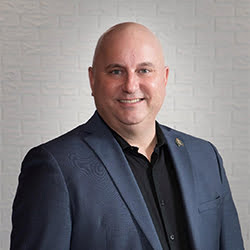
Curtis Hoople
President
Edmonton Police Service
Curtis Hoople has been a police officer with the Edmonton Police Service (EPS) for twenty-one years and has been a promoted Sergeant for over eleven years. Curtis has worked in many uniform and operational areas for the majority of his career. This includes work areas like Patrol, Neighborhood Foot Patrol (Beat Officer), Recruit Training Unit – Police Training Officer Program, Employee Family Assistance Section, and Disruption Section. In addition to his time with EPS, Curtis has represented the membership with the Edmonton Police Association since 2018 as a Director, Secretary, Vice President and now President. This is an elected position, and the Vice President and President roles are full-time positions which requires an approved leave from the EPS. Curtis handles various caseloads that deal with criminal, police act, labour, human rights, collective agreement, or internal matters that relate specifically to our 2000+ members of the EPA.
Away from policing, Curtis enjoys family time and various extracurricular activities like biking, fishing, and golfing. Curtis has a Physical Education Degree – Sport Performance and Coaching from the University of Alberta.
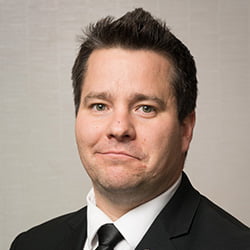
Codey McIntyre
President
Alberta Professional Fire Fighters & Paramedics Association
Codey was elected President of the Alberta Professional Fire Fighters & Paramedics Association (APFFPA) in May 2023. Prior to this role, he served as President of the Calgary Firefighters Association IAFF Local 255. Codey has been an active leader within the Local 255 Executive Board since 2015, holding various positions including Vice President and Executive Vice President. With nearly two decades of service in the Fire Service, he continues to work as a Firefighter with the City of Calgary Fire Department.
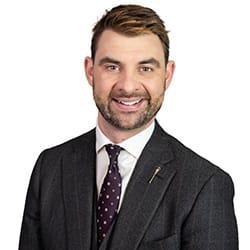
Dan Williams
Minister of Mental Health and Addiction
Alberta
Dan Williams was sworn in as the Minister of Mental Health and Addiction on June 9, 2023. He was first elected as the Member of the Legislative Assembly for Peace River on April 16, 2019, and was re-elected on May 29, 2023.
Minister Williams has been tasked with implementing Alberta’s mental health and addiction strategy, known as the 'Alberta Recovery Model'. This policy model focuses on the fact that recovery is possible, no matter what addiction or mental health challenge someone may face. Under his leadership, Alberta is building 11 recovery communities across the province, a record-breaking expansion to long-term addiction treatment. He has connected with communities, First Nations and families dealing with the addiction crisis. Alberta has now established a new mental health and addiction agency, Recovery Alberta, which is funded and overseen by the Minister of Mental Health and Addiction.
The province, under Minister Williams is also investing in mental health services, especially for children and youth. Partnerships with service providers are expanding services across the entire province and connecting families with the mental health support they need.
Dan is a devoted father and husband. Outside of his work, Dan is an avid mountaineer who enjoys hiking, kayaking and camping.
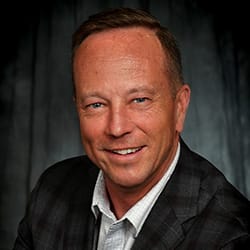
Michael Parker
President
HSAA
Mike Parker has been a first responder since 1992, volunteering in his local community of Coaldale, Alberta. He went on to work in the private ambulance industry in Andrew, Lamont, Morinville and Athabasca, before moving to Edmonton in 1996. He graduated as a paramedic in 1999.
He has been involved in the labour movement for many years, serving as a steward and as vice-president of his local with the Canadian Union of Public Employees (CUPE). He became a member of HSAA in 2009 and served on the board before being elected as Vice-President in 2015. The following year, he became President. Mike has always been a strong proponent of the role of unions in protecting the rights of citizens and of the public sector in providing vital services.
Mike has also served as a volunteer with Canadian Medical Assistance Teams (CMAT), providing emergency assistance after disasters in the Philippines, Pakistan and Nepal. He has been recognized by the Governor General of Canada with the Sovereign’s Medal for Volunteers for embodying the caring country we hope to build, and the Emergency Medical Services Exemplary Service Medal for his more than 20 years of setting a high level of conduct while providing pre-hospital emergency aide.
As HSAA’s President, Mike is committed to helping Local Units create the conditions to ensure greater member engagement, knowing that we are all stronger when we work together.

Jessica Bennett
Registered Provisional Psychologist, BHSc, MACP
Emergency Medical Services – Alberta Health Services
Jessica Bennett is a Registered Provisional Psychologist with the College of Alberta Psychologists. She holds a Bachelor of Health Science Degree in Addiction Counselling from the University of Lethbridge and a Master of Arts in Counselling Psychology from Yorkville University; she has been in practice since 2010. Jessica works with individuals, couples, and groups. She specializes in therapy, program development, and education for public safety personnel, perinatal, military, veteran, and healthcare/frontline populations. Jessica provides clinical guidance and ongoing evaluation of the Alberta Health Services EMS Reintegration Program and has supported the creation and development of numerous other programs and initiatives within Alberta Health Services. Having grown up in a family of public safety personnel and healthcare workers, Jessica witnessed the daily challenges that these populations encounter, both personally and professionally. She is passionate about supporting “the helpers” and feels incredibly connected to the work that she does.
As a mother to three busy boys, including twins, Jessica enjoys cheering on her little athletes, being active, going to concerts, and watching sports.
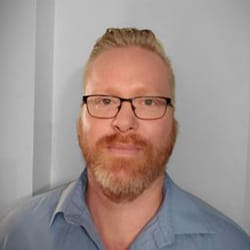
Cst. Steven Hopper
School Resource Officer
Calgary Police Service
Steven Hopper was born and raised in Alberta and grew up on an acreage outside of the small northern town of Beaverlodge. Desiring a career in policing he was able to join the Calgary Police Service in 2010 and has worked most of his career in a uniform capacity in the Northeast of Calgary. Was diagnosed with PTSD in 2021 and after a few dark years was able get healthy and come back stronger through Faith, Family and Friends. He has learned a few things along the way that he hopes can help other first responders and their loved ones struggling with mental health.

Tavia Nazarko MA, RN, BN
Manager, Organizational Wellness
Calgary Police Service
Tavia is a registered nurse and has worked in the field of Mental Health and Addictions for the past 25 years supporting individuals in their wellness and recovery. She has worked in acute and community mental health settings; then transitioned her focus into therapy, specializing in Dialectical Behaviour Therapy. In 2010 she completed her Masters in Healthcare Leadership and has since worked in roles developing programming for community crisis support and outreach.
Following the 2013 Southern Alberta Floods Tavia was a member of the team to support recovery within Calgary and surrounding areas. This work was accomplished though collaboration with several community service providers and organizations focused on disaster recovery and preparedness initiatives.
Tavia joined CPS in July 2022 as a member of the Organizational Wellness Unit initially as the Peer Support Nurse therapist and currently holds the position of Manager of the Organizational Wellness Unit. Her work now focuses on public safety personnel aimed at providing exemplary member wellness programming and services for CPS members and their families.
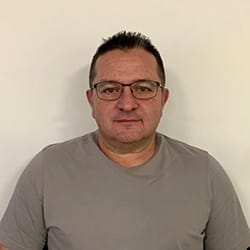
Sgt. John Grillone
Peer Support Coordinator
Calgary Police Service
John’s first responder journey began in 1994 when he started as an EMT. In 1996, he advanced his skills and became an Advanced Care Paramedic working in the city of Calgary as well as other rural services. In 2005, John transitioned to the Calgary Police Service, where he has worked in various roles, including patrol, Special Duties, Serious Habitual Offender Program and as a detective in General Investigations. His diverse experience has equipped him with a broad skill set and deep understanding of public safety.
Currently, John serves as a Peer Support Coordinator, passionately advocating for the mental health and well-being of sworn and civilian members.

